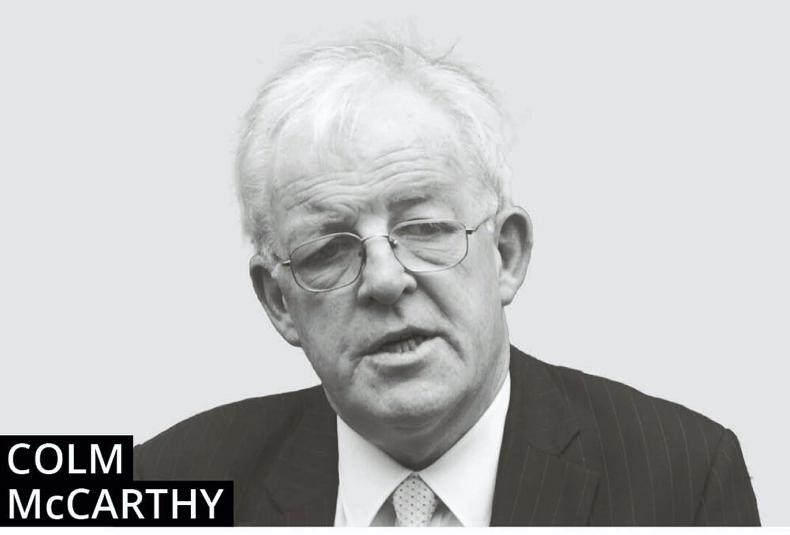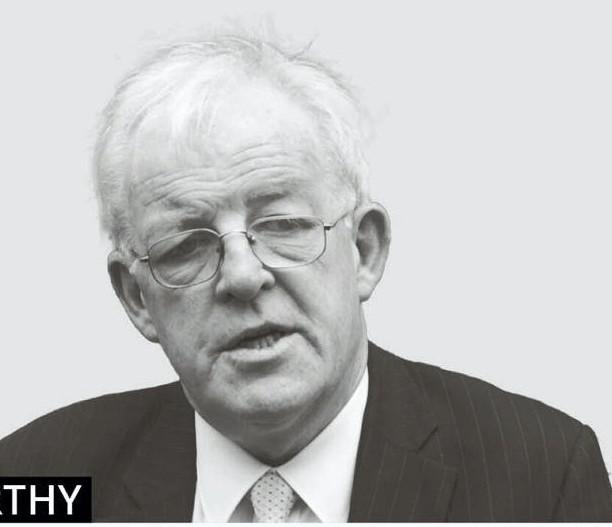Managing the economic recovery will be the EU’s big policy challenge next year if all goes well and the virus is suppressed. Almost all eurozone members are borrowing heavily and that is the textbook response to an economic shock.
They can do so because the European Commission has suspended its rules about ceilings on deficits and debt. Crucially, the European Central Bank (ECB) has been buying government bonds freely, ensuring that governments can borrow at little cost.
Without this ECB support, some of them would struggle to find buyers for the enormous quantities of bonds they are issuing and they would face higher interest cost.
We screwed up the banks ourselves and were due no favours
When the COVID-19 crisis ends, how quickly should governments in Europe seek a return to normality? After the 2008 financial crash, the less-indebted countries of northern Europe insisted that their over-borrowed fellows should get back to budget balance too quickly and were indifferent to the pro-cyclical adjustments forced on Greece, Portugal and Ireland.
We screwed up the banks ourselves and were due no favours, but this country ended up with a deeper downturn than was needed, courtesy of the German obsession with an eccentric version of fiscal orthodoxy.
This time, the German government has taken a wiser course, accepting that everyone is blameless and so has the ECB.
But normality will eventually mean a return to far more modest deficits and a period of tighter budget policy
The deficit limit in the Stability and Growth pact will stay suspended and the ECB will expand its balance sheet further, in effect creating credit for governments and insulating them from the market for public debt. But normality will eventually mean a return to far more modest deficits and a period of tighter budget policy, or the more indebted countries will expose themselves again to nervous bond markets.
The policy should involve two key components. The first is the recognition that premature reopening of economies will lead to another round of lockdowns and will defer recovery.
The second though is a willingness not to close off recovery too quickly through a hasty reimposition of tighter budget policy.
Everyone knows that permanent deficits at extraordinary levels, especially in the over-borrowed countries including Ireland, is not a sustainable course and will risk another eurozone crisis. But the pace of re-balancing and the composition of public spending will matter greatly.
The timing will have to be better than governments have displayed in the over-hasty relaxation of public health measures every time the infection figures begin to improve. All countries have had two lockdowns at this stage, Ireland is one of several in Lockdown 3. Lockdowns weaken potentially viable firms and damage the economy’s longer-term prospects. There should be no more lockdowns.
Many people have seen no fall in income but have been unable to spend, so bank deposits have risen sharply
But there will inevitably be only a slow return to high levels of employment and the early withdrawal of income support, such as the PUP payment and the wage subsidy scheme in Ireland, would be a mistake. The Irish Government borrowed €19bn last year, will borrow about the same amount again this year and should accept another deficit for 2022.
There could be a consumer boom for many households, but not for all.
Many people have seen no fall in income but have been unable to spend, so bank deposits have risen sharply. There is lots of pent-up demand. But almost one million are either out of work or are being paid in part by the Government through subsidies to firms. Removal of these supports should be gradual.
When they reopen, they should recover strongly
There should, however, be an early restoration of the VAT reductions – the 23% rate was cut to 21% and applies in large part to imports, while reduction to 9% of the 13.5% rate on hospitality businesses is not much use to them since they are closed. When they reopen, they should recover strongly. What they will need is access to working capital and there will be a continuing role for credit guarantee schemes.
Ministers have been indicating that the Exchequer capital programme will be protected. That is a lesson learned from the post-2008 budget consolidation, when the capital programme was cut too severely. At some stage, perhaps in the 2022 or 2023 budgets, there will have to be tax increases if untimely cutbacks are to be avoided.
Politicians have been too willing recently to rule out taxation options, never mind biting the bullet on water charges
The Government is already committed to increases in the carbon tax and there are other candidates – it is hard to justify the favourable tax treatment of road diesel, for example. Politicians have been too willing recently to rule out taxation options, never mind biting the bullet on water charges. There has also been a reluctance to increase the residential property tax, unpopular even with parties on the political left which one would expect to favour the taxation of property. The option nobody wants to address is the taxation of income – given the ambitions of all parties to sustain current and capital spending, money must be found somewhere.









SHARING OPTIONS